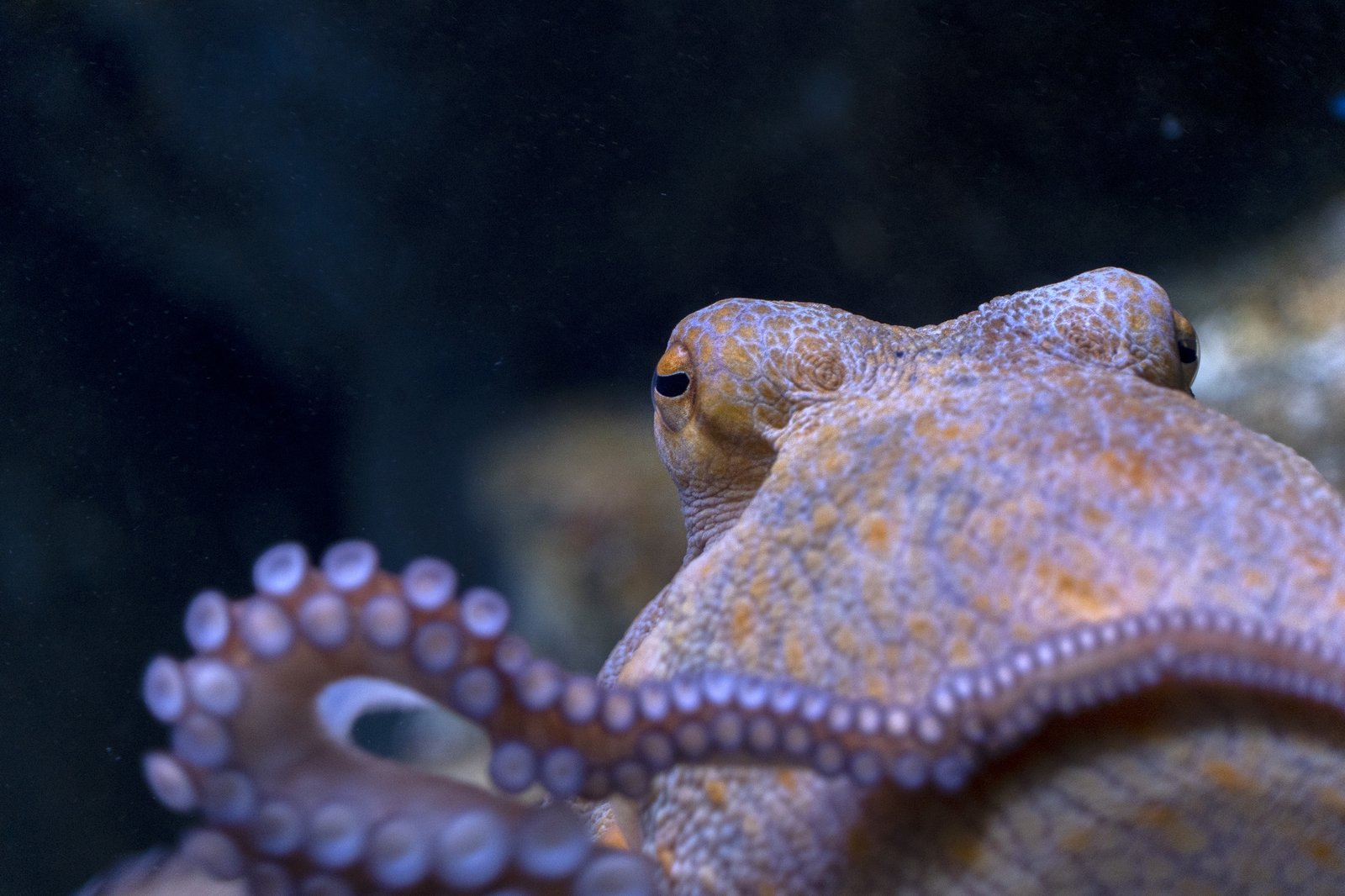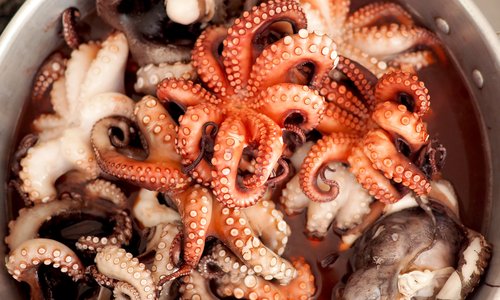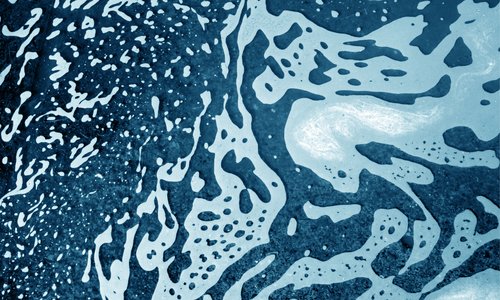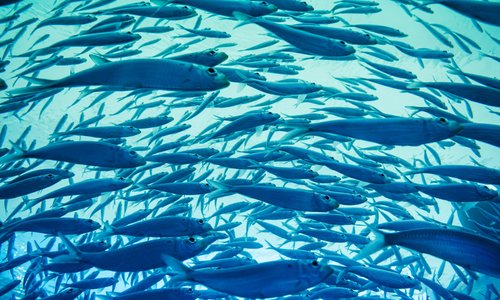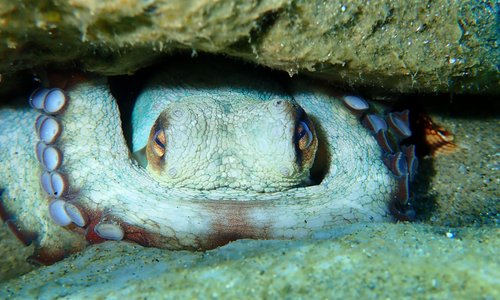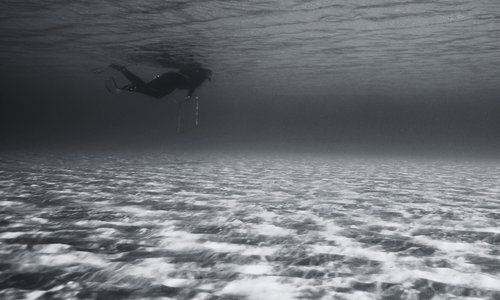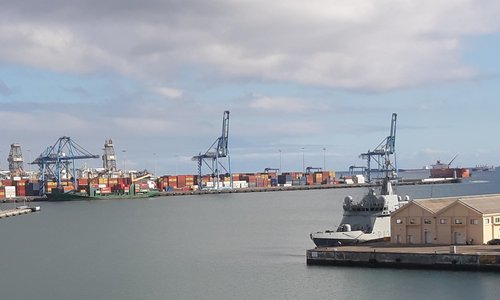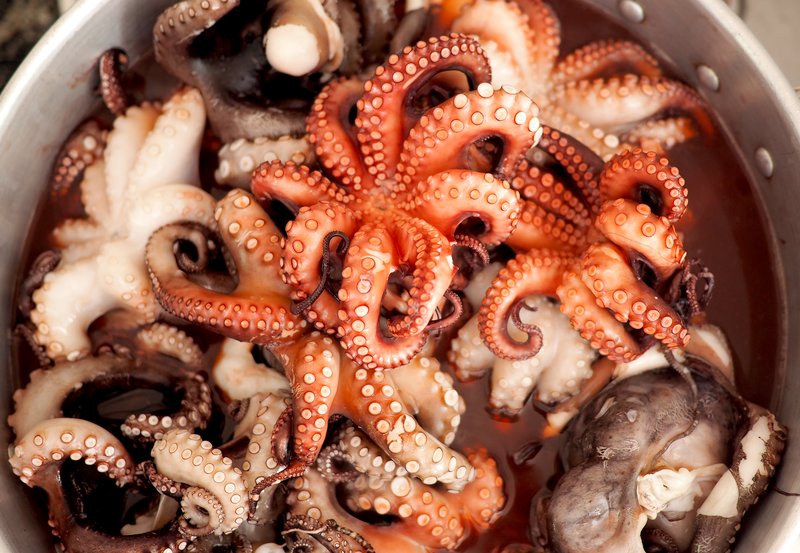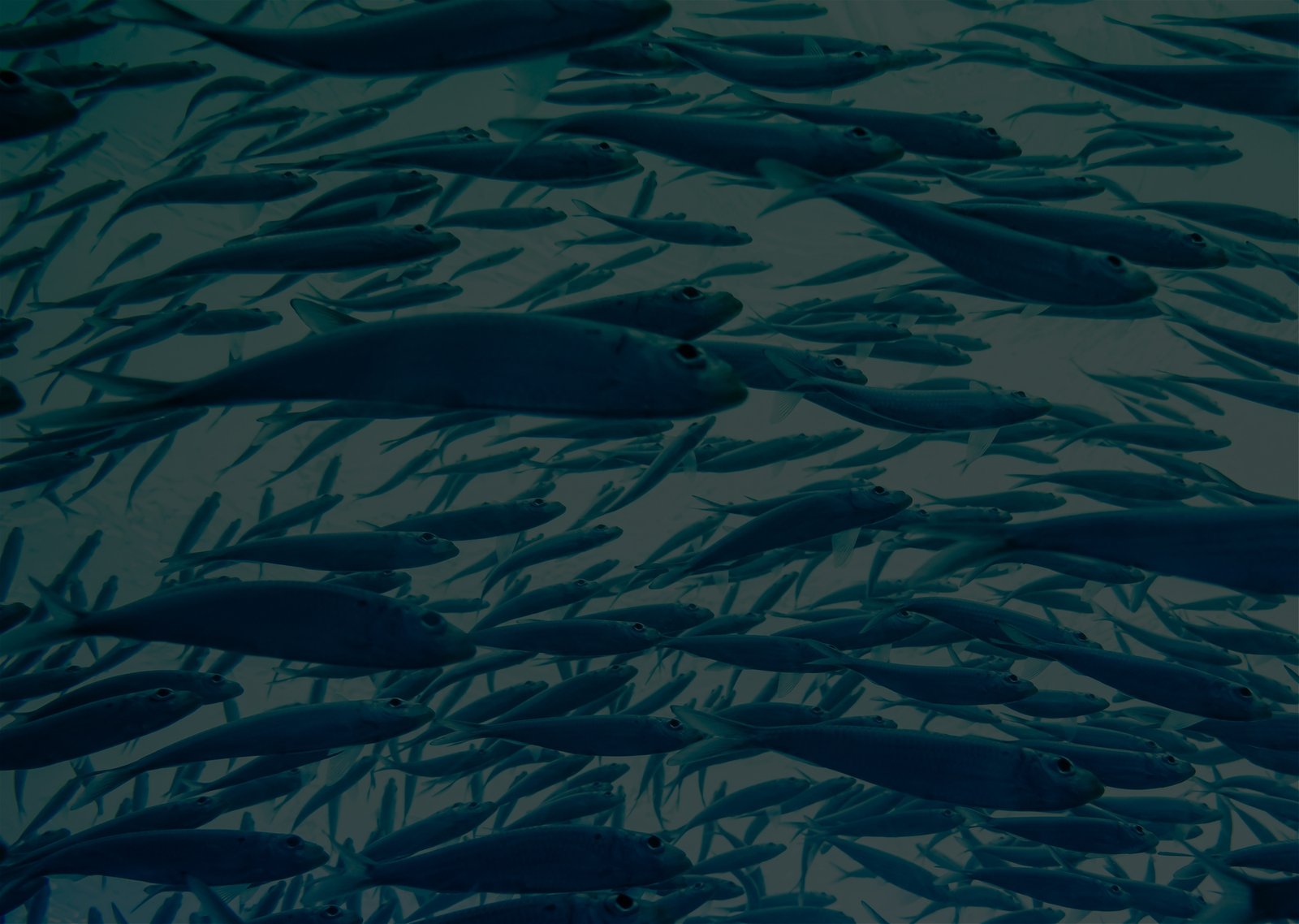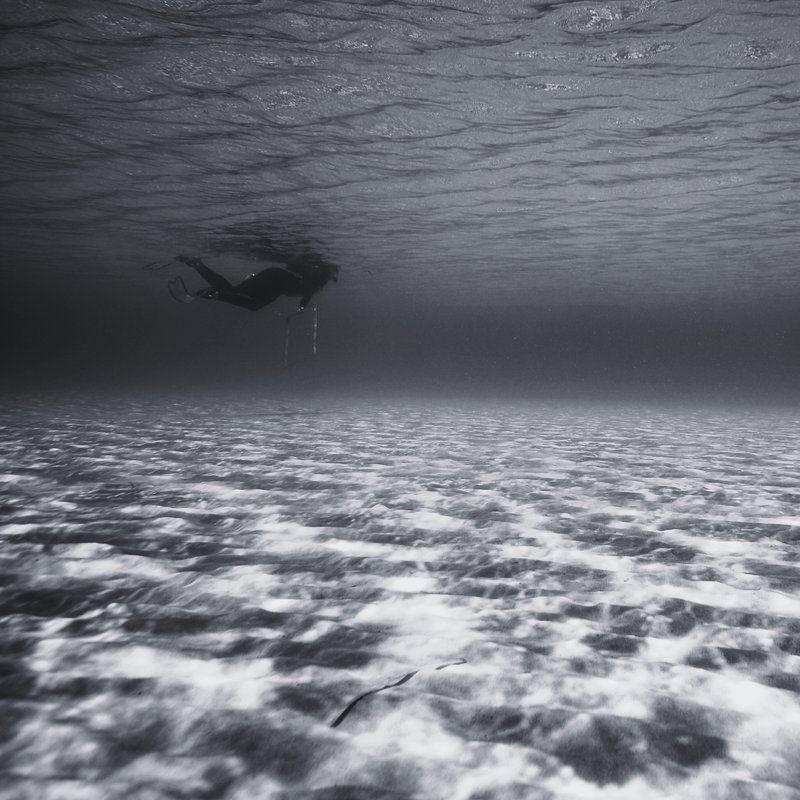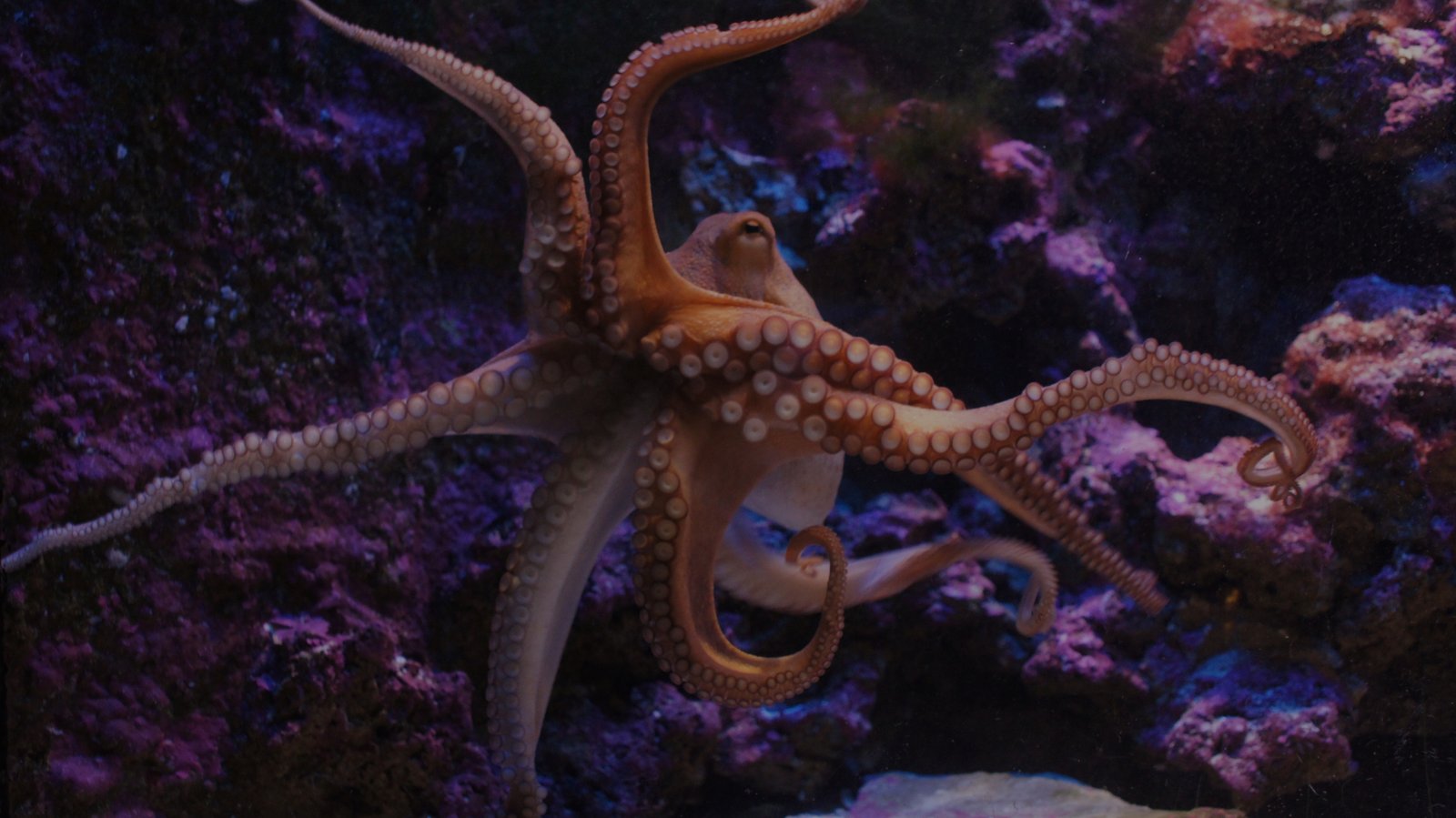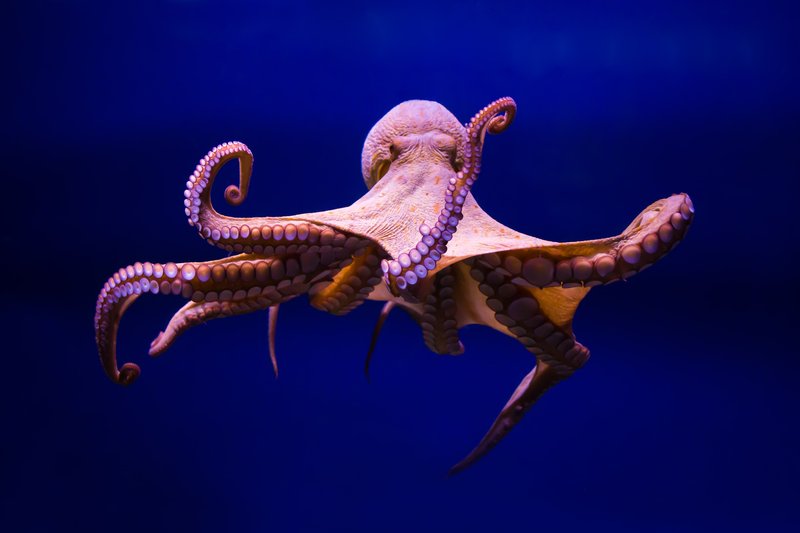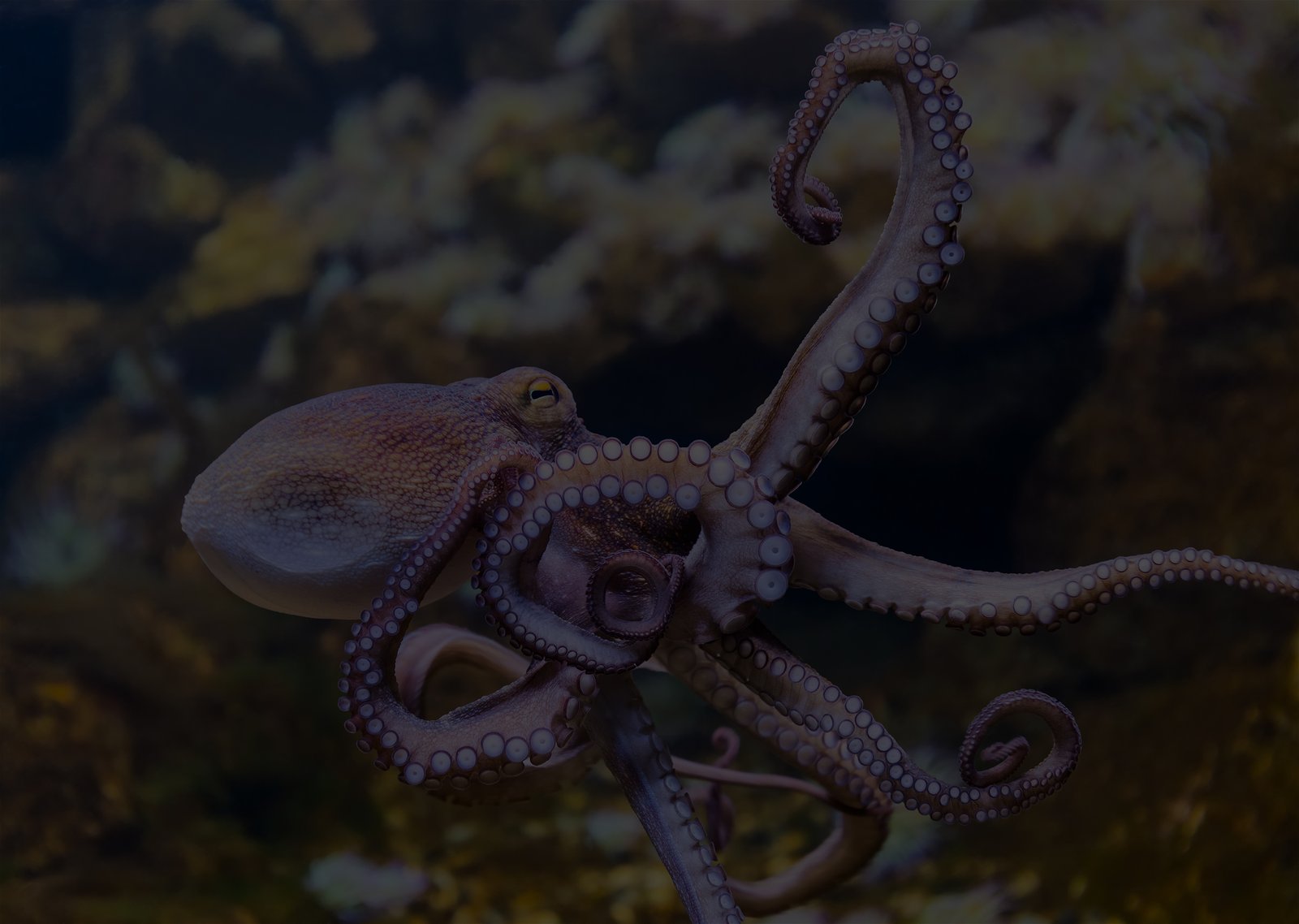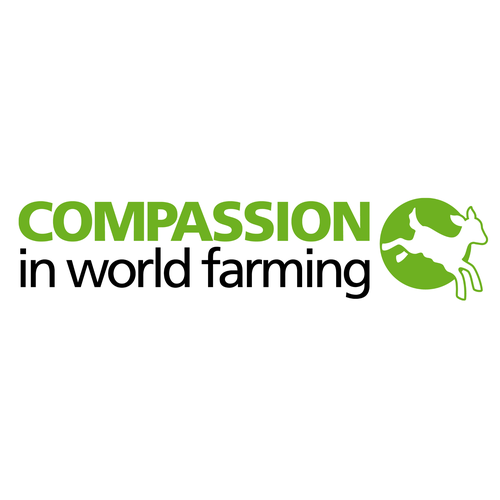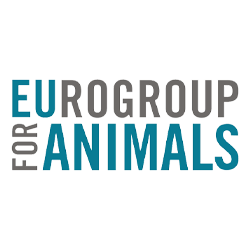-
The report made it clear that the octopus farm plans entirely neglected animal welfare.
The proposed slaughter method was with ice slurry, a practice that is currently being phased out across the aquaculture sector due to the painful and prolonged deaths it causes (2,3). Another welfare issue uncovered was the proposed stocking density of 10-15 octopuses per cubic metre of aquaculture tank. As naturally solitary beings, these highly crowded conditions are known to lead to stress, aggression, and even cannibalism among octopuses (4,5).
-
Several environmental issues were also emphasised in the report...
including the use of feed ingredients derived from wild-caught fish, and the extremely high energy requirements associated with the proposed land-based aquaculture system. In addition to these clearly defined issues, there were also several gaps identified within the farm plans. In terms of measurements of potential disease outbreaks among the octopuses in captivity, the company falsely claimed that no relevant octopus diseases exist. The composition and extent of waste to be discharged from the farm into the marine environment was also absent.
-
Before Nueva Pescanova’s application to build an industrial octopus farm can be approved, a favourable environmental impact assessment (EIA) must first be issued by the Government.
These evaluation processes are required by the European Union’s (EU) EIA Directive to assess direct and indirect environmental impacts of development projects before they begin.
Typically, aquaculture projects of this size are subject to a simplified type of assessment procedure. However, the Canary Islands Government’s Autonomous Commission for Environmental Assessments (CAEA) rejected the simplified procedure for this octopus farm in 2023, as it could have ‘significant’ impacts on the surrounding environment. Nueva Pescanova must now undergo a second, more exhaustive type of environmental procedure, requiring considerably more details to be submitted by the company. The reasons behind this decision were published in the minutes and agreements of the CAEA of the Canary Islands Government in early 2024. The minutes exposed the serious environmental threats posed by the farm, and the company’s failure to properly address them.
Read the report findings below.
Report: Exposing the environmental risks of octopus farming (2024)
Introduction
In March 2023, Compassion in World Farming and Eurogroup for Animals published a joint report - Uncovering the Horrific Reality of Octopus Farming – in which plans for the world’s first octopus factory farm were exposed publicly. The issues examined in the report were directly linked to an aquaculture licensing application submitted to the Canary Islands Government by Spanish seafood company Nueva Pescanova.

